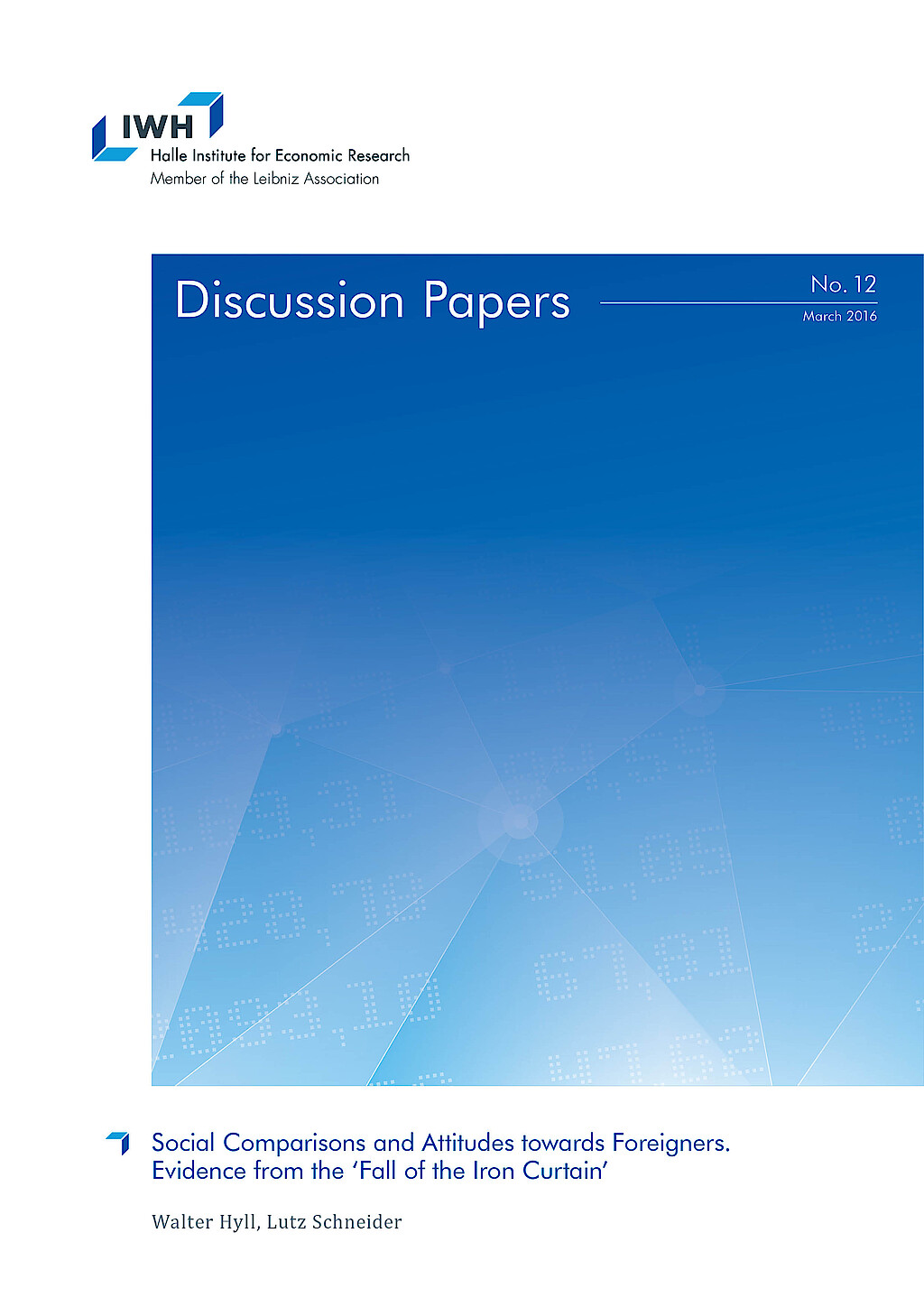
Social Comparisons and Attitudes towards Foreigners. Evidence from the ‘Fall of the Iron Curtain’
We exploit the natural experiment of German re-unification to address the question whether distress from social (income) comparisons results in negative attitudes towards foreigners. Our empirical approach rests upon East German individuals who have West German peers. We use the exogenous variation of wealth of West German peers shortly after the fall of the Berlin Wall as an instrument to identify the effect of distress from social comparisons on East Germans’ attitudes. We find robust evidence that East Germans expose strong negative attitudes towards foreigners, particularly from low-wage countries, if they worry about their economic status compared to better-off peers.





